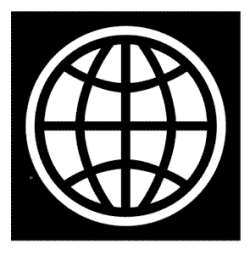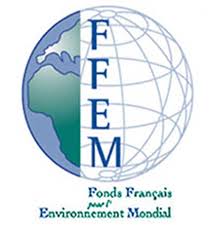Europe & Russia
5- World Bank Group (Independent Evaluation Group)
 We evaluated for the Independent Evaluation Group of the World Bank a portfolio of 9 energy efficiency projects in Eastern Europe and Russia where the funding and loan guarantees (partial credit guarantees) from the IBRD and IFC (most having received GEF funding) were channelled to financial intermediaries or energy service companies (ESCOs).
We evaluated for the Independent Evaluation Group of the World Bank a portfolio of 9 energy efficiency projects in Eastern Europe and Russia where the funding and loan guarantees (partial credit guarantees) from the IBRD and IFC (most having received GEF funding) were channelled to financial intermediaries or energy service companies (ESCOs).
This was an input to the report: “The challenge of low carbon development” (2010). This report constitutes Phase II of an evaluation series on “Climate Change and the World Bank Group” (2010).
We wrote for the World Bank a review of Germany’s energy efficiency policies between 1990 and 2007, as part of a Bank initiative to benchmark countries and distillate lessons for policy-makers in countries at a less advanced stage of economic or relevant policy development.
This culminated in the book “Energy Efficiency: Lessons Learned from Success Stories” published in early 2013. This study analyzes the energy efficiency policies in seven countries that were successful in achieving low energy intensities or in considerably reducing their energy intensity. Charting the evolution of the energy intensity of these countries from 1990 to 2007, and identifying points of inflection in the progress towards improvements, its purpose is to determine what policy changes make a difference in countries' energy intensity (2010).
15- Organization for the Security and Cooperation in Europe (OSCE)
 The OSCE has a membership of 56 states in Europe, Central Asia and America. It provides security in a geographical area stretching from Vancouver to Vladivostok. It deals with three dimensions of security: politico-military, economic, environmental and human.
The OSCE has a membership of 56 states in Europe, Central Asia and America. It provides security in a geographical area stretching from Vancouver to Vladivostok. It deals with three dimensions of security: politico-military, economic, environmental and human.
Under the environmental heading, we wrote a report analyzing "the implementation of the commitments of OSCE member countries in the field of energy efficiency", which was presented at the 19th Economic and Environmental Forum of the organization in Prague
The report concluded that “energy efficiency is the winning strategy to simultaneously address a variety of policy objectives, including security of supply (reduced energy dependency), climate change (lower GHG emissions), competitiveness (lower operating costs), balance of payments (lower imports, higher exports), reduced investment need (in energy generation and distribution) and environmental protection (reduced local pollution, deforestation.)
Energy efficiency is the largest, cheapest (most measures have a negative cost on life-cycle basis), and not least a domestic, energy resource. Studies show that the potential for cost-effective (zero or negative on a life-cycle basis) energy savings in most OSCE participating States is vast, particularly in countries in transition, which only took interest in energy efficiency since 1989-1991.
The ‘canon’ and best practice in energy efficiency policies are well known and are widely debated in international conferences, and within international organizations’ fora and expert groups which involve experts from governments, such as the EU, the IEA, UNECE’s Committee on Sustainable Energy, and the Energy Charter Conference. Yet, despite all these benefits, that potential remains largely untapped, and implementation (e.g. of the G8/IEA 25 recommendations) is lagging in many countries or sectors (e.g. transport). There is a paradox that the most obviously beneficial policy is not implemented, or only on a scale and with a scope that fall short of needs” (2011).
16- Fonds français pour l’environnement mondial (FFEM, or French GEF)
 FFEM is a French government fund, managed by the AFD, which supports initiatives and international projects aimed at preserving the environment, including the fight against climate change.
FFEM is a French government fund, managed by the AFD, which supports initiatives and international projects aimed at preserving the environment, including the fight against climate change.
We acted for FFEM as evaluation and monitoring officer of a project which the FFEM is co-financing as donor: UNECE’s “Financing Energy Efficiency Investment” (FEEI) project. This project consists in developing a fund that will invest in the form of equity and/or mezzanine financing in energy efficiency or renewable energy projects in 13 countries of the former Soviet Union and central and eastern Europe (2010-2011)

